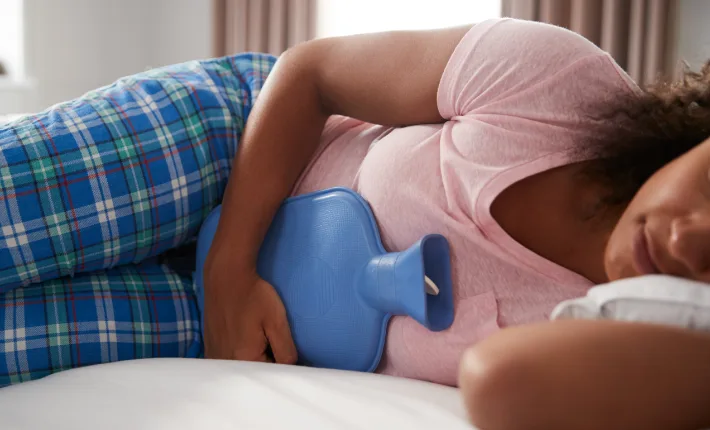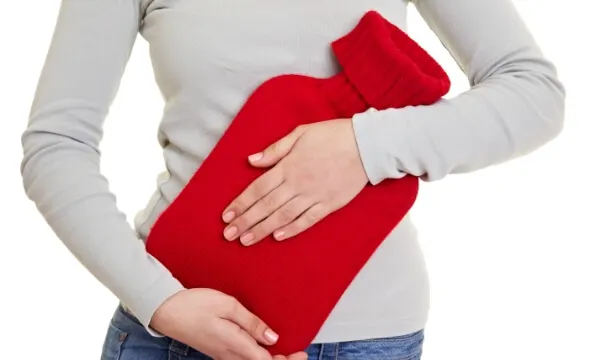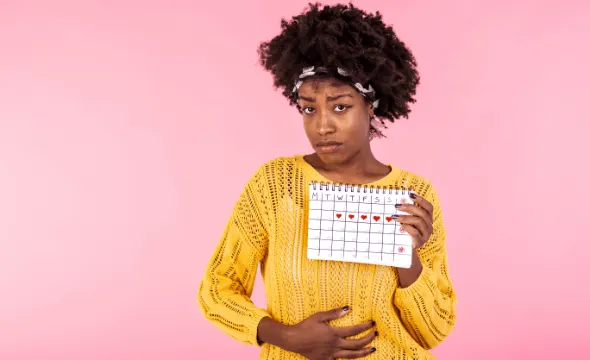Understanding Period Pain: Causes, Cramps, and How to Find Relief

Is a hot water bag your go-to keeper during your periods? Chances are that you have already been accustomed to period cramps. Along with the monthly bleed, mood swings and cravings, ‘that time of the month’ causes a lot of pain in the lower abdomen and back. While for most women these period pains are manageable, others experience unbearable pain.
Medically known as dysmenorrhea – this condition causes painful periods. The pain is such that it tends to hinder your day to day activities. It’s seen that dysmenorrhea affects women who are in their prime. However, it can affect menstruating woman at any age. In some cases, women experience heavy bleeding too.

hot chocolate and some good rest can ease this kind of discomfort, sometimes the pain can get intense and unbearable.
While heavy period pads can help you manage the flow, understanding the possible reasons behind heavy, painful periods is important. Finding the right treatment is even more essential as it can cause other health risks. Thus, to help you out, we’ve listed down the possible reasons for heavy painful periods. But before that let’s understand what’s the reason behind painful cramps.


What Causes Painful Period Cramps?
Typically, painful period cramps are a result of a substance called prostaglandins. It results in your body while you menstruate and it contracts the uterus as it sheds blood. This action causes pain which for some women can be too painful to handle. In some cases, these painful periods are accompanied by the heavy flow. All of which makes you feel like your body is going through a whirlwind.
What May Be Causing Heavy, Painful Periods?
There are several possible causes and risk factors related to painful periods. Some of them include:
1. Hormonal problems:
Menstrual periods begin when your uterus sheds its lining buildup that accumulates throughout the cycle. When the hormone levels in the body are disrupted, the lining becomes thicker and triggers a heavier period. In such situations, it’s best to use super absorbent sanitary pads that manages your heavy flow like the ALWAYS Maxi Thick Pads These heavy flow pads have anti-leakage barriers and an innovative extra-absorbent core that offers maximum protection. It also has a clean and dry topsheet, and high Flexi wings that deliver ultimate comfort and worry free movement. All of which makes it an ideal heavy pad for periods.Period protection during night requires special care and we’ve got you covered for that as well with the ALWAYS Night Dreamzzz Pads. These heavy pads for periods are designed with deep channels and wider back to minimize the risk of leakage. Likewise, the flexible wings assist in keeping your heavy flow pad in place through all your midnight twists and turns.
2. Growth within the uterus:
Non-cancerous growth like that of fibroids within the lining of the uterus can overthrow the normal function of your uterus. The period flow tends to be heavier and is likely to last much longer.3. Bleeding disorder:
A bleeding disorder affects the body's ability to stop bleeding in the case of a cut. Similarly, it can also affect a woman's period and cause the menstrual flow to last way beyond the usual number of days. In such cases, you can use tampons meant for heavy flow. Try the ALWAYS Tampax Compak Super Plus tampons as they are designed to manage heavy flow days. They have innovative absorption channels that quickly lock in the liquid and hold it in for longer. A special protective skirt at the bottom of the tampon eliminates the risk of leakage. Likewise, it also has a smooth applicator that provides easy insertion which makes these tampons ideal for beginners with heavy flow.4. Female cancers:
In very rare cases, uterus cancer or ovarian cancers could cause abnormal bleeding. What may seem to be a heavy period with unbearable pain could be caused by an underlying condition.

How Do I Know if It Is Dysmenorrhea?

Women experience a similar level of menstrual pain every month but it is rarely persistent
Women experience a similar level of menstrual period pain every month but it is rarely persistent. Typically, the first two days are much more intense and the flow is heavier. The pain and the menstrual flow tend to taper off over the later days. Regular period cramps are triggered in the lower back, abdomen, and legs.
Most importantly, the pain with dysmenorrhea will feel very different, to an extent where it cannot even be controlled with over-the-counter pain killers. This is an indication to get medical help.


Ways to Manage Painful Periods
You can ease painful periods by staying snuggled in your bed with a heating pad. This will help your muscles relax and allow your body the resting comfort it needs. Also, stay hydrated as it helps flush out toxins and prevents bloating
Go for walks and do some light stretching. It releases endorphins and will make you feel much more relaxed
Surround yourself with things that make you happy. Watching your favourite -while snuggled inside your blanket!
Eat a well-balanced meal which contains nutritious fruits and vegetables
Take vitamins and supplements like vitamin B-1, B-6 & E, calcium and omega-3 fatty acids. Make sure to take these supplements only after consulting your doctor
Massage your abdomen region
When to See A Doctor
Chances are that heavy bleeding may be causing excessive pain in your body. When this pain becomes unbearable and hinders with your daily activity, it's a sign to visit a doctor. Apart from the period pain, here are some instances that require medical attention:1. Experiencing cramps along with nausea and diarrhea
2. Experiencing pain in the pelvic region even while you aren’t bleeding
3. Passing blood clots
4. Pain that doesn’t subside even after having OTC medications
5. Having three painful periods
Takeaway
Last of all, do not neglect the signals sent out by your body. You understand your body best, so trust yourself to care for it. In the meantime, you can continue to depend on Always feminine hygiene products like sanitary pads and tampons for heavy flow management. Make sure to stay well prepared for your next period by tracking it on Always Period Calculator.
FAQs
1. When should you worry about painful periods?
A large percentage of menstruating women experience painful periods but if your symptoms worsen, the you must consult a healthcare professional. These symptoms can include vomiting, fever, dizziness, unusual vaginal discharge, etc.
2. Why do period pains get worse as you age?
As women approach menopause, their hormone levels start to fluctuate. What this means is that hormones responsible for regulating your periods and other symptoms are not functioning properly which can result in heavier and more painful periods.
3. When do heavy periods become an emergency?
Heavy periods can become a problem if they continue for a long period of time and stay untreated. Exceptionally heavy periods can lead to anemia and other complications. If you are experiencing nausea, dizziness or shortness of breath along with a very heavy period, it is time to consult a doctor.
Disclaimer
Please note the date of last review or update on all articles. No content on this site, regardless of date, should ever be used as a substitute for direct medical advice, diagnosis or treatment from your doctor or other qualified clinician. Always is committed to ensuring that all of our products meet rigorous safety standards; Always pads prioritize safety, protection and comfort of its consumers.









